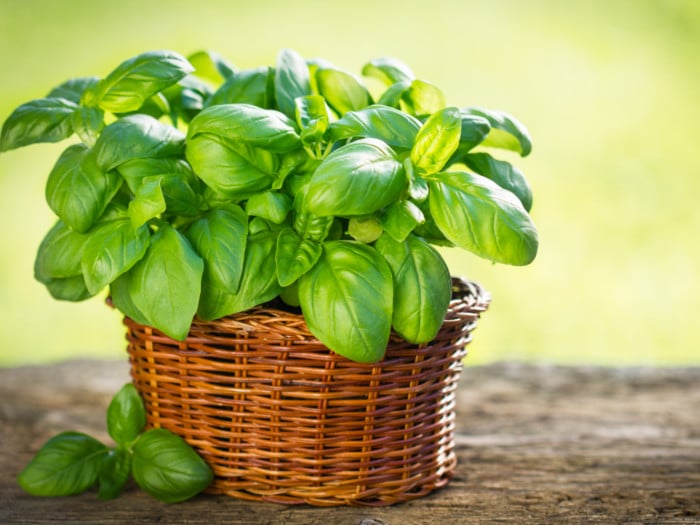Basil is an aromatic herb whose wide and tender green leaves are used in cuisines across the world that include Italian, Chinese, and Thai dishes. This delicate herb has a limited growing season. So, if you can’t find fresh basil at your supermarket, there are plenty of great substitutions. Also, knowing the right basil substitutes can help you save a dish if you happen to run short of this versatile herb.
Basil Substitutes
There are plenty of good basil substitutes since its flavor is similar to many other common herbs. The best substitutes of basil include the use of fresh oregano, parsley, cilantro, thyme, spinach, kale, arugula, and dried tarragon.

Basil leaf is a wonderful herb that has many uses in cooking and natural medicine. Photo Credit: Shutterstock
Fresh Oregano or Thyme
Fresh oregano or thyme can be substituted in equal amounts as fresh basil. They will give you the spicy aroma you’re looking for in Italian cooking. You can try a little chopped fresh rosemary too, and this hardy herb will hold up longer if you’re simmering or baking with it. [1]
Parsley or Cilantro
Another great substitute for basil is parsley. The delicate flavors of this prolific herb will shine best in cold or raw dishes like green salad or pasta salad. You should also consider parsley’s cousin, cilantro (a divisive herb loved by some and hated by others), in Latin or Asian-inspired dishes. Cilantro is a strong and tangy herb that will shine with other strong flavors. [2]
Spinach, Kale or Arugula
If you’re making pesto, there are lots of fun ways to experiment. Puree your nuts, cheese, and olive oil with spinach or kale for a rich green pesto, or use arugula which has a nice peppery bite. You can also substitute a mix of fresh thyme, oregano, and parsley when making pesto. It will taste very different than basil, but will be just as delicious!

Fresh spinach leaves Photo Credit: Shutterstock
Dried Tarragon and Oregano
In its dried form, basil loses many of the subtleties that make it a unique fresh herb. Luckily, this means you can substitute any number of other dried herbs, such as parsley, tarragon, oregano, or even an Italian seasoning blend. Always use half the amount of dried herbs as fresh herbs that are called for in a recipe or else the dried herbs will overpower other flavors in your cooking. [3]
